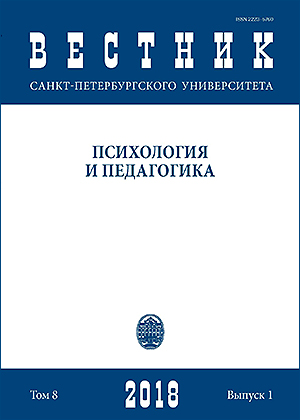Time of meaning: narrative modus of time perspective
Abstract
Does “It’s getting worse” mean the same as “everything has gone wrong”? I am afraid, It seems so. The cognitive heuristics of ‘Remembering Self ’ (D.Kahneman) make us suffer from such illusion: over-dramatizing the “peak-end” effect and underestimating the time duration factor in experiencing pain or pleasure. The same heuristics work in reasoning when judging the subjective quality of ones’ personal lifespan. In our empirical research of time perspective in autobiographic self-narratives, we show that even subtle, negatively-changing dynamics in ones’ personal past-present-future satisfaction level (Likert scale, semantic differential, 19 constructs from Nuttin’s Time Attitudes Scale) is reflected immediately in narrative structure. We have detected: (i) long pauses, frustration markers and blocking in narration about the future; (ii) discounting past experience; (iii) pessimistic scenarios of life course or overidealized future ones (irrelevant to “course-effect” or “goal-directed” links between life events and identity); and (iv) the lack of a thematic type of global narrative coherence of past-present-future stories. Participants included 112 graduated bachelor’s and master’s students from Saint-Petersburg State University, namely emerging adults (18–27 years old). They were asked to present (in written and oral form) one coherent narrative, including three autobiographic stories to illustrate the relationship between one chosen identity (from their 20 statement test) and one past, one actual and one hypothetical future life event. Analysis involving an independent sample of 42 students confirmed the findings mentioned. Self-narration as a powerful cultural instrument of identity-construction is well known and has been vastly discussed last decades. The vulnerability of emerging identity to narrative patterns and the crucial role of temporality in narrative structure makes the dynamics of time perspective evaluation an important target of therapy even when small in amplitude but progressive. Therefore we propose that cognitive heuristics in the area of phenomenology of time become an important theoretical issue for further study. Empirical results were discussed in frames of phenomenological and existential approaches to the temporality narrated.
Keywords:
time, temporality, cognitive heuristics, time perspective, narrative, autobiography, identity, phenomenology of time, agency, lifespan, “peak-end” effect
Downloads
References
References
Downloads
Published
How to Cite
Issue
Section
License
Articles of "Vestnik of Saint Petersburg University. Psychology" are open access distributed under the terms of the License Agreement with Saint Petersburg State University, which permits to the authors unrestricted distribution and self-archiving free of charge.




